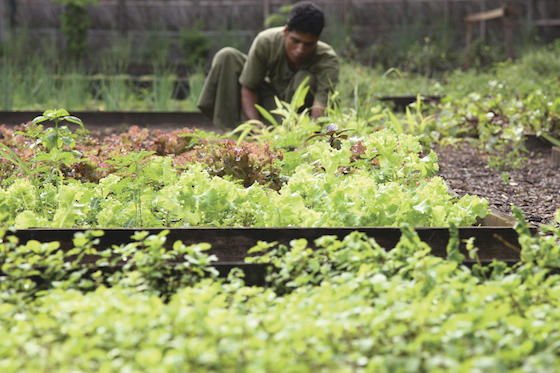Thanks to a growing awareness of sustainable development across Asia Pacific, especially among eco-conscious travelers and smart hoteliers who understand the business case for doing so, this dynamic region is starting to make an impact on the environment – both locally and globally. In effort to shine a spotlight on those in the region’s hospitality industry that have exhibited successful, sustainable strategies benefiting their companies, guests, surrounding communities and the greater society through responsible development, the Hotel Investment Conference Asia Pacific (HICAP) launched the HICAP Sustainable Hotel Awards over a decade ago. Here’s who won and why:
- The Asia Pacific region traditionally has not been recognized as a leader in this area, with Asian ownership profiles in hotels less institutional or consolidated than in the West, where investor pressures often dictate a sustainable approach. With so much growth and environmental issues coming to head in the Asian theater, the anecdotes are starting to add up and gain broader momentum.
- Eric Ricaurte, founder of Greenview and a member of the HICAP awards’ judging panel, helped identify five recent examples of how a sustainable approach has demonstrated tangible results for owners.
- The below honorees help to highlight creative and unique success stories in the region. It’s important to note that the following hotels have developed numerous sustainability best practices, even though only one key practice may be identified and emphasized.

Contributed by Burba Hotel Network
1. Soneva Fushi, Baa Atoll, Maldives
Soneva Fushi introduced a 2% environmental levy on the room rate in 2008, which has raised US$7 million to date. Soneva invested through the Soneva Foundation in carbon mitigating projects, which has mitigated 500,000 tonnes of CO2 and improved the lives of more than 230,000 people. The projects are expected to mitigate around one million tonnes of CO2 over their lifetime. Soneva has many sustainable best practices related to waste management, biodiversity and local community.
2. Six Senses Qing Cheng Mountain, Chengdu, China
Six Senses Qing Cheng Mountain has implemented many innovative features resulting from the design process. Some of these features include: waste heat recovery (preheating the boiler and hotel water use in rooms, space and swimming pool) saving approximately 11,416 kWh/month worth US$2,600/month and reducing carbon footprint by 46.71 tCO2/year; water bottling facility producing an average of 7,215 bottles/month worth US$26,000/month; graywater recycling (for landscaping and to flush toilets), producing an average of 4,374.83 m3/month worth US$1,700/month; an organic garden that produces an average of 242.91 kg/month worth US$250/month; and frequency converters for 50 high-power electrical appliances saving approximately 42,500 kWh/month worth US$9,900/month and 173.89 tCO2/year.
3. Jetwing Yala, Sri Lanka
The Jetwing Yala is a leading example in Sri Lanka of a grid-tied solar photovoltaic system. The hotel hosts one of the largest privately owned solar PV installations in the country with 1,122 panels and installed capacity of 300 kWp net metered system. The system reduces the demand on the national supply and reduces the organization’s carbon footprint. It supplies more than 80% of the hotel’s day-time electricity demand, which amounts to more than 40% of its daily electricity requirement. The average generation is 1,500 kWh/day, which equates to financial savings of 20,000 LKR/day (approximately US$125/day) and emissions avoided of 600 kg of CO2/day.
4. ITC Grand Chola, Chennai, India
The ITC Grand Chola is recognized as the world’s largest LEED Platinum-rated hotel. ITC Grand Chola is a 600-key hotel with more than 1.6 million square feet of built-up area. This large hotel uses LEED for all buildings and funds much of its own energy and energy and water/waste infrastructure. The hotel’s investments in energy and sustainability initiatives in the past three years have totaled US$553,000 with a complete payback period of less than three years. Investments included: conversion to LEDs; installation of heat pump, heat pipe and automatic tube cleaning system; recovery of condensate water; and implementing various water conservation projects.
5. East, Hong Kong
At the East hotel in Hong Kong, one sustainability initiative focuses on plastic waste, which never fully decomposes. The all-day dining restaurant replaced plastic straws with biodegradable ones starting in June and only serves them upon request. It is estimated to reduce around 1,000 pieces of plastic straws per month. The hotel is exploring the opportunity to install water purifiers in guestrooms. From May 2017 to April 2018, the hotel consumed 15,200 bottles of water with a cost HKD$333,000 per year. The hotel has also implemented several new recycling initiatives; one of the items is the complimentary toothbrush. The East is reportedly the only hotel collaborating with 3R Hong Kong International Eco-Action for plastic toothbrush recycling and has collected 12,000 pieces of toothbrush from September 2017 through 2018.
In commenting about hotel owners’ commitments to sustainability, Ricaurte says:
“Sustainability doesn’t have to be an all-or-nothing issue for a hotel, and many owners in Asia are starting to see that some very good practices can generate solid returns on investment and strengthen the asset value. The HICAP Sustainable Hotel Award winners have shown the specifics of how they work creatively with capital to increase value in specific areas of renewables, efficiency and even waste materials. Their main focus is still financial, and they are seeing how sustainability is another lens for identifying opportunities that others are missing out on.”
